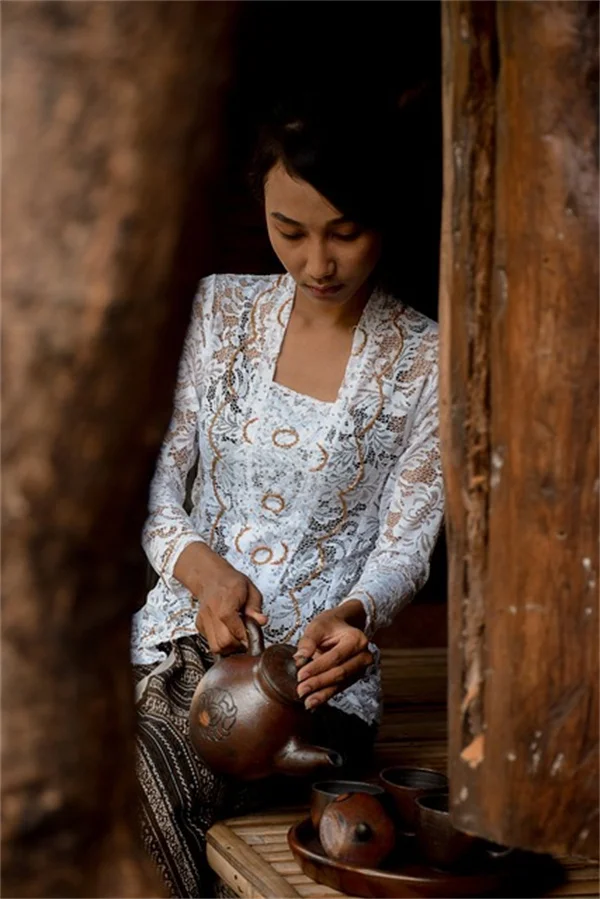Advertisement
How often should you get a colonoscopy if you're healthy? The answer might surprise you: If your first colonoscopy comes back clean and you have no family history of colorectal cancer, you could potentially wait 15 years before your next screening - that's five years longer than the current 10-year recommendation! A major Swedish study involving over 110,000 adults found that extending the interval to 15 years for low-risk individuals would only miss detecting 2 additional cancer cases per 1,000 people. We'll break down what this means for you, why fewer screenings might actually be better for some people, and how to make the right decision for your health.
E.g. :WaterTok Trend: Healthy Hydration or Sugar Trap? Experts Weigh In
- 1、Rethinking Colonoscopy Frequency: When 15 Years Might Be Enough
- 2、Understanding the Risks and Benefits
- 3、Colorectal Cancer 101: What You Need to Know
- 4、Should You Wait 15 Years? The American Perspective
- 5、The Future of Cancer Screening
- 6、Beyond the Scope: Alternative Screening Methods Worth Considering
- 7、The Lifestyle Factor: What You Can Do Between Screenings
- 8、The Cost Conversation Nobody Wants to Have
- 9、The Psychological Hurdles We Don't Talk About Enough
- 10、When Family History Complicates Things
- 11、FAQs
Rethinking Colonoscopy Frequency: When 15 Years Might Be Enough
The Surprising Findings From Sweden
You know that feeling when your car's "check engine" light comes on too often? Sometimes medical screenings can feel the same way. A groundbreaking Swedish study suggests that if your first colonoscopy comes back clean and you have no family history of colorectal cancer, you might not need another one for 15 years - that's five more than the current standard recommendation!
The research team analyzed data from over 110,000 adults who had negative colonoscopies between 1990-2016. Here's what they found:
| Screening Interval | Additional Cases Caught | Additional Deaths Prevented |
|---|---|---|
| 10 Years | Current Standard | Current Standard |
| 15 Years | 2 per 1,000 people | 1 per 1,000 people |
Why This Matters for You
Think about it this way: Would you rather get unnecessary medical procedures or have doctors focus resources where they're most needed? The study suggests extending screening intervals could:
- Reduce healthcare costs
- Free up medical resources
- Decrease patient discomfort
- Maintain excellent cancer detection rates
Understanding the Risks and Benefits
 Photos provided by pixabay
Photos provided by pixabay
The Other Side of the Coin
Now, you might be wondering: "If colonoscopies are so great, why would we do fewer of them?" Excellent question! While colonoscopies save lives, they're not without risks:
The preparation alone can be... let's just say "unpleasant" (anyone who's done the prep knows what I mean!). More seriously, there's a small but real risk of complications like bleeding or perforation (about 3 in 10,000 procedures). Plus, there's the cost - both to you and the healthcare system.
Finding the Right Balance
Dr. Christopher Chen from Stanford puts it perfectly: "Screening recommendations are society's value judgment about acceptable risk." We're trying to find that sweet spot where we catch enough cancers early without over-testing healthy people.
Imagine you're baking cookies. Too little testing is like underbaking - dangerous. Too much is like burning them - wasteful and potentially harmful. We're looking for that golden-brown middle ground.
Colorectal Cancer 101: What You Need to Know
The Basics That Could Save Your Life
Colorectal cancer starts as small growths called polyps in your colon or rectum. While most polyps are harmless, some can turn cancerous over time. Here's the scary part: it's the second-leading cause of cancer deaths in the U.S., yet less than 60% of adults aged 45-75 get screened!
That's like knowing there's a burglar in your neighborhood but not locking your doors. Regular screening could prevent about 35,000 deaths annually. The American Cancer Society recommends starting at age 45.
 Photos provided by pixabay
Photos provided by pixabay
The Other Side of the Coin
Among screening options, colonoscopy is the "gold standard" because doctors can both find and remove suspicious polyps during the same procedure. Other methods like stool tests are good alternatives, but if they show something suspicious, you'll still need a colonoscopy anyway.
Should You Wait 15 Years? The American Perspective
One Important Caveat
Here's where we need to pump the brakes slightly. The Swedish study is impressive, but as Dr. Reid Ness from Vanderbilt points out, Sweden's population isn't as diverse as America's. Different ethnic groups have varying risks that might affect screening recommendations.
Think of it like weather forecasts - what works for Stockholm might not apply to Miami. We need more research to see if these findings hold true across different populations.
Your Personal Decision Tree
So how should you decide? Ask yourself:
- Was my last colonoscopy completely clear?
- Do I have any family history of colorectal cancer?
- Am I experiencing any symptoms like bleeding or unexplained weight loss?
- Do I have other risk factors like inflammatory bowel disease?
If you answered "no" to all these, the 15-year interval might be reasonable to discuss with your doctor. But remember: when in doubt, check it out!
The Future of Cancer Screening
 Photos provided by pixabay
Photos provided by pixabay
The Other Side of the Coin
The big takeaway? One-size-fits-all screening may become a thing of the past. Future guidelines might consider factors like:
- Your genetic risk profile
- Lifestyle factors (diet, exercise, smoking)
- Previous screening results
- Ethnic background
This Swedish study is an important step toward more tailored healthcare. But until we have more data, the 10-year standard remains the safest bet for most Americans.
A Final Thought to Digest
Here's something to chew on: "If we screened everyone perfectly, would we still need this debate?" The sad truth is that many people avoid screening altogether because of fear or inconvenience. Maybe the real win here is making screening more accessible and comfortable so everyone gets tested when they should.
After all, the best screening interval is the one you'll actually follow through with. Whether it's 10 years or 15, the most important thing is that you get screened when it's right for you.
Beyond the Scope: Alternative Screening Methods Worth Considering
Stool Tests - The Less Invasive Option
Let's be real - nobody enjoys colonoscopy prep. But did you know there are other ways to screen for colorectal cancer that don't involve drinking that awful liquid or taking time off work?
The FIT test (fecal immunochemical test) checks for hidden blood in your stool - something you can do in the privacy of your own bathroom. It's recommended annually, and if it comes back positive, then you'd need a colonoscopy. Think of it like a smoke detector - it alerts you when there might be fire, but you still need firefighters to put it out.
Cologuard and Other Emerging Technologies
Ever heard of Cologuard? It's like the FIT test's high-tech cousin that also looks for abnormal DNA in your stool. The FDA approved it in 2014, and while it's not as thorough as a colonoscopy, it's way more comfortable.
Here's a quick comparison of your options:
| Test Type | Frequency | Detection Rate | Prep Required |
|---|---|---|---|
| Colonoscopy | Every 10 years | 95% | Extensive |
| FIT Test | Yearly | 79% | Minimal |
| Cologuard | Every 3 years | 92% | None |
The Lifestyle Factor: What You Can Do Between Screenings
Diet Changes That Actually Make a Difference
You know those boring "eat your vegetables" lectures? Turns out mom was right - but some foods pack more cancer-fighting punch than others. Cruciferous veggies like broccoli and Brussels sprouts contain sulforaphane, a compound that may help prevent cancer cell growth.
And here's a fun fact - coffee drinkers have about a 15% lower risk of colorectal cancer! Though we're not sure if it's the caffeine or other compounds doing the work. Either way, your morning cup might be doing more than just waking you up.
Move That Body - Your Colon Will Thank You
Did you know that sitting too much might increase your colon cancer risk by up to 24%? That's right - your desk job could literally be a pain in the... well, you know.
But here's the good news: just 30 minutes of moderate exercise daily can cut your risk by 20-25%. You don't need to run marathons - even brisk walking counts. Think of it as giving your colon a little internal massage to keep things moving smoothly.
The Cost Conversation Nobody Wants to Have
Insurance Coverage and Surprise Bills
Here's something that might shock you more than colonoscopy prep: the average cost of a colonoscopy in the U.S. ranges from $1,100 to $4,800! But wait - isn't preventive care supposed to be free under the Affordable Care Act?
Great question! While screening colonoscopies are covered, if the doctor finds and removes polyps, some insurers reclassify it as a diagnostic procedure and charge you. It's like getting a free car wash, but if they find dirt, you have to pay for the detailing.
Creative Ways to Make Screening Affordable
If cost is holding you back, consider these options:
- Ask about cash prices - sometimes they're lower than insurance rates
- Look for free screening programs in your area during Colorectal Cancer Awareness Month (March)
- See if your employer offers a health savings account
- Ask about payment plans - many providers offer them
The Psychological Hurdles We Don't Talk About Enough
Embarrassment - The Silent Screening Killer
Let's address the elephant in the room - yes, we're talking about your butt. Many people avoid screening because they're embarrassed, but guess what? Gastroenterologists have seen thousands of colons - yours is just Tuesday for them.
One patient told me, "I'd rather have a root canal than a colonoscopy." But when I asked why, she admitted it was all about embarrassment. Here's the truth: doctors care about finding problems early, not judging your anatomy.
Fear of Pain - Mostly Unfounded
Another common concern: "Will it hurt?" The vast majority of patients report little to no pain during the procedure thanks to sedation. In fact, many people wake up asking when it's going to start!
The prep is definitely the worst part, but new options like lower-volume prep solutions and split dosing (half the night before, half the morning of) make it more tolerable. Some centers even offer "prep coaches" to help you through it.
When Family History Complicates Things
The Genetic Wild Card
If you have a first-degree relative (parent, sibling, child) who had colorectal cancer, your risk doubles. That's why guidelines recommend starting screening earlier - typically at age 40 or 10 years before the youngest case in your family.
Think of it like this: if your family has a history of house fires, you'd probably get more smoke detectors, right? Same principle applies to your health.
Lynch Syndrome and Other Inherited Risks
About 5% of colorectal cancers come from inherited syndromes like Lynch syndrome. If multiple relatives have had colon, endometrial, or other cancers, consider genetic counseling.
Testing positive doesn't mean you'll definitely get cancer - it means you can take powerful preventive steps. Knowledge is power, even when the news isn't perfect.
E.g. :Colorectal Cancer Guideline | How Often to Have Screening Tests ...
FAQs
Q: Is it really safe to wait 15 years between colonoscopies?
A: For healthy individuals with no family history of colorectal cancer and a clean first colonoscopy, the Swedish study suggests waiting 15 years appears to be just as safe as the standard 10-year interval. The research found this approach would only result in missing 2 additional cancer cases and prevent 1 additional death per 1,000 people screened. However, experts caution that these findings may not directly apply to more diverse populations like in the U.S., where risk factors can vary significantly by ethnicity and lifestyle. The key takeaway? If you're low-risk, discuss this option with your doctor, but don't make the decision alone.
Q: Why would doctors recommend fewer colonoscopies?
A: It might seem counterintuitive, but there are good reasons to consider fewer screenings for low-risk individuals. First, colonoscopies aren't risk-free - there's a small chance (about 3 in 10,000) of serious complications like bleeding or perforation. Second, the preparation and procedure can be uncomfortable and time-consuming. Third, reducing unnecessary screenings frees up medical resources for people who truly need them. As Dr. Christopher Chen from Stanford explains, it's about finding the right balance between detecting enough cancers early while avoiding over-testing healthy people.
Q: What factors determine if I'm low-risk enough for extended intervals?
A: You might be a candidate for longer screening intervals if: 1) Your first colonoscopy showed no polyps or abnormalities, 2) You have no family history of colorectal cancer, 3) You don't have inflammatory bowel disease, and 4) You're not experiencing any symptoms like rectal bleeding or unexplained weight loss. Age also matters - this recommendation primarily applies to adults between 45-75. If any of these factors change, you should consult your doctor about adjusting your screening schedule.
Q: How does this compare to other colorectal cancer screening methods?
A: While colonoscopy remains the "gold standard" because doctors can both detect and remove polyps during the procedure, other options exist. Stool-based tests (like FIT or Cologuard) are less invasive and can be done annually, but if they're positive, you'll still need a colonoscopy. The Swedish study specifically looked at colonoscopy intervals - the findings don't necessarily apply to these alternative screening methods. For people who can't or won't get colonoscopies, annual stool tests remain an important option for early detection.
Q: Should I follow these new recommendations or stick with the 10-year guideline?
A: For now, the 10-year standard remains the safest recommendation for most Americans. While the Swedish study is compelling, its population differs significantly from the diverse U.S. population where colorectal cancer risks vary by race, ethnicity, and lifestyle factors. The best approach? Have an open conversation with your gastroenterologist about your personal risk factors. They can help you weigh the pros and cons of extending your screening interval based on your complete health picture. Remember: when in doubt, it's always better to err on the side of caution with cancer screenings.

